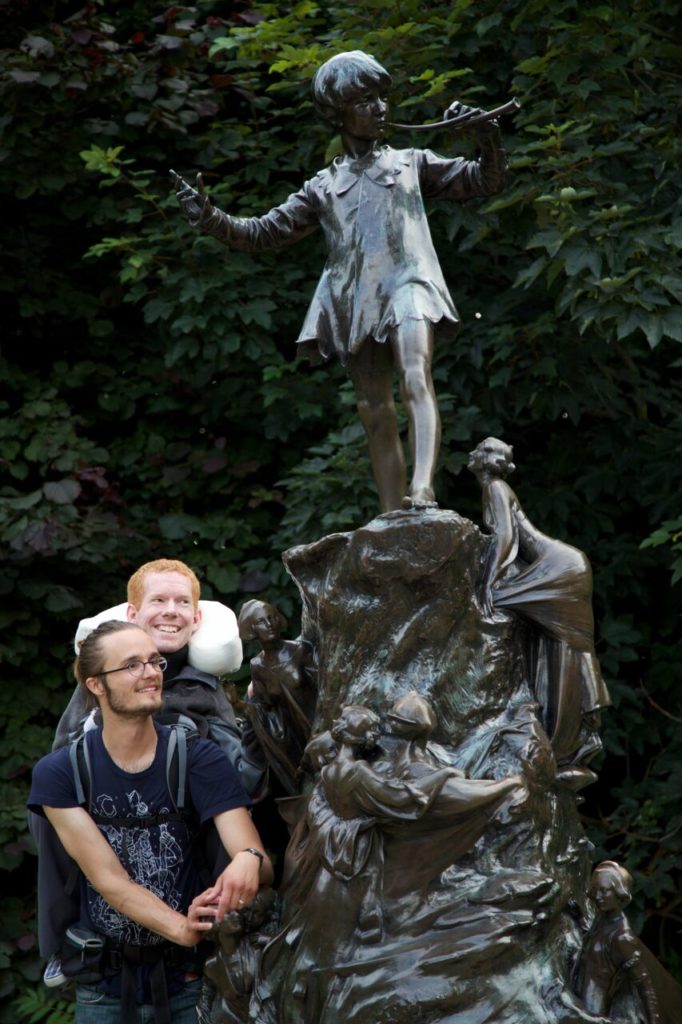Who are you?
Have you ever thought about how we tend to answer that question? “I’m an entrepreneur. I’m a teacher. I’m a fitness instructor. I’m a radio producer.” It seems natural to tie our identity to our job or position.
I don’t think that’s necessarily a bad thing. But what if our job becomes our life? What if we derive the entirety of our identity and sense of worth from work? Just the other day, I read an article in the New York Times[1]about our “grim and exploitative” “hustle culture” that glorifies long days and endless striving. “Perhaps we’ve all gotten a little hungry for meaning,” writes Erin Griffith, observing that as participation in organized religion is falling, “the concept of productivity has taken on an almost spiritual dimension.” Many are beginning to argue that this is toxic.
 Perhaps God knew we would be tempted to base our value on our productivity. Perhaps He knew that we would forget how important it is to stop. That’s why He told us to remember:
Perhaps God knew we would be tempted to base our value on our productivity. Perhaps He knew that we would forget how important it is to stop. That’s why He told us to remember:
“Remember to observe the Sabbath day by keeping it holy. You have six days each week for your ordinary work, but the seventh day is a Sabbath day of rest dedicated to the Lord your God.” (Exodus 20:8-10)
“Holy” means set apart, different. God’s idea was that the seventh day of each week (Saturday) would be different, a break from work, a special time of rest with God. If you look at what else the Bible has to say about Sabbath, you’ll see that God’s plan for the Sabbath was for it to be a meaning-laden delight.
Unfortunately, by the time of Jesus, that delight in the Sabbath had been largely lost, buried under a heap of rules and regulations about how to keep Sabbath—rules that God had never given. “They made Sabbath a pain instead of a joy.” (Messiah p 130)
In this week’s chapter from Messiah (Chapter 21 – Healing on the Sabbath), Jesus made himself some powerful enemies among the religious leaders by challenging their ideas about Sabbath. He had healed a paralysed man on the Sabbath, thus breaking their rules.
But Jesus wanted to remind people that the Sabbath was made for them.
“God’s holy rest day was made for humans. He doesn’t want anyone to suffer who could be helped on the Sabbath… Just as God rested from creation on the seventh day, we should stop our daily work and save those holy hours for rest, worship, and helping others.” (Ibid p 133)
Each week, God asks you to rest and discover the delight of Sabbath. Will you accept his invitation?
Join in our book club discussion in the comments below!
- Think about the meaning behind the Sabbath. In light of those insights, how will you celebrate Sabbath this week?
- If you already keep the Sabbath, but it has become more of a “pain instead of a joy,” ask yourself why. What might you need to change about how you celebrate Sabbath?
- Consider this quote: “Many who were not interested in the critical lectures of the Pharisees listened to the teachings of Jesus. They could understand the words He used. He talked about God as a caring Father instead of a harsh judge. He showed what God was like by his own actions. By his works and his words, Jesus was breaking the power of the old traditions and man-made commandments. He was showing a true picture of the love of God.” (p 131)How is looking at Jesus changing your view of God and breaking the power of old traditions?
This chapter of Messiah is based on John 5 if you want to read it in your own Bible.
Listen to Lynette share chapters from “Messiah” on The Breakfast Show every Thursday after 8am. Or catch up later via the podcast.
If you want to know more about the Sabbath, or you’d like to get a copy of “Messiah” by Jerry D Thomas or a free Bible, let us know.
[1]https://www.nytimes.com/2019/01/26/business/against-hustle-culture-rise-and-grind-tgim.html?emc=edit_mbe_20190128&nl=morning-briefing-europe&nlid=7657795820190128&te=1&fbclid=IwAR3kopqxvpHP1peCKnQKInOG6N4vjVg58S80qJy650jL3b04MGBH15kN6Xo






